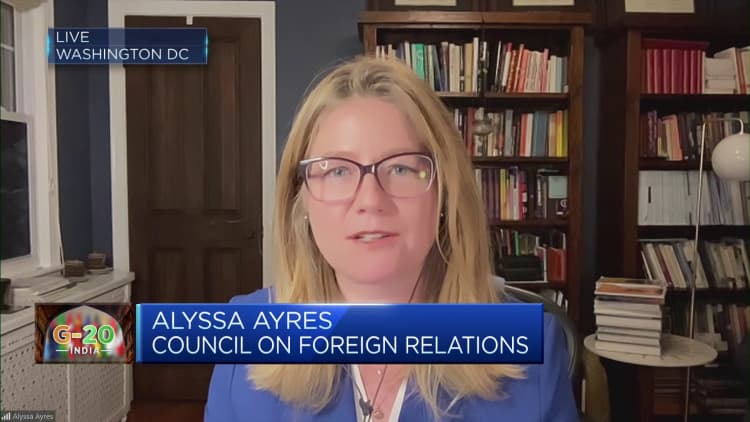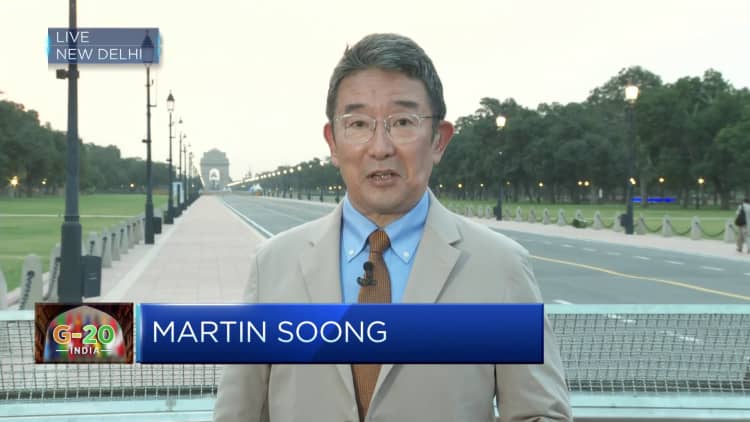
India's relationship with the United States is the strongest it's been in years.
U.S. President Joe Biden and Indian Prime Minister Narendra Modi are set to meet for another bilateral meeting later Friday at the Group of 20 summit in New Delhi, after several one-on-one meetings earlier this year.
Despite warming ties — with both leaders sharing a hug during Modi's state visit to Washington in May — a "traditional alliance" between the two nations remains off the table, according to the Council on Foreign Relations.
"I do not think India and the United States are headed for a traditional alliance relationship … India is keen to make sure it protects its ability to make its own decisions on every kind of question," said Alyssa Ayres, adjunct senior fellow for India, Pakistan, and South Asia at the Council on Foreign Relations.
India is a "very independent" country, and the traditional alliance relationship the U.S. has with other countries "creates an almost unexpectable level of deference on the part of the other country," Ayres told CNBC's "Squawk Box Asia" on Friday.
"India very much doesn't want … what it sees as its freedom of action in the future, constrained by requirements to act on behalf of another country due to an alliance agreement," Ayres added.
Both countries still have disagreements, with a notable one being their views on the Russia-Ukraine war, which Washington has condemned but New Delhi has so far refrained from doing so.
India has purchased discounted Russian oil since the war broke out in February last year, and now imports about 40% of its crude supply from Moscow.
"Obviously, this is an area where American foreign policy leaders would like to see something different given American concerns about Russia's war in Ukraine," Ayres highlighted.
"So I think that this is yet another area where you do see some space between American interests and Indian interests … That's probably going to remain an area of disagreement."
U.S.-India tech partnership
Although an India-U.S. alliance seems to be off the table, the partnership between the two countries will continue to strengthen, with technology cooperation at the forefront of it.
In May, Biden and Modi announced a slew of technology and defense deals, ranging from collaborating on diversifying supply chains to working together across space and artificial intelligence.
"Technology generally has really been in the lead in improving this relationship," said Evan Feigenbaum, vice president for studies at the Carnegie Endowment for International Peace.

"For a long time, people used to talk about India as a country that needed to be reformed. But increasingly, India has models and ideas and things that have been tested domestically that can be exported and scaled," Feigenbaum told CNBC.
"They're relevant in parts of the world, especially the global south like Africa and the Middle East, much more relevant than the models the United States and Europe has," he added, citing the example of how India's digital infrastructure has helped the "unbanked become banked."
"It's something the government wants to showcase and it's something you're going to hear a lot about at this G20," Feigenbaum said.


